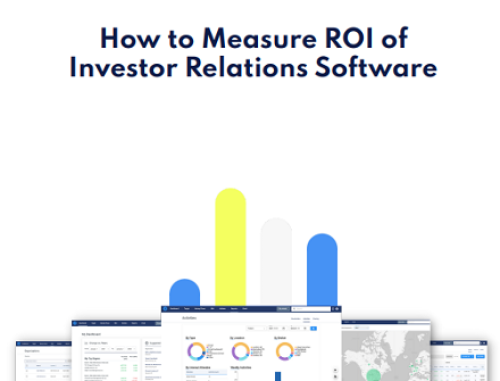Imagine an annual-report experience where you walk into a virtual library and select different sections to read by hand, while sophisticated animations bring to life concepts like the business model or corporate purpose.
That could be the future of corporate reporting, according to a new report by the UK’s Financial Reporting Council (FRC). The research, part of a series on emerging technologies, suggests ways virtual and augmented reality (VR and AR) could be used to support the annual report, AGMs and other investor events.
The report says use of VR and AR in corporate reporting is ‘niche’ but the pandemic’s acceleration of digital trends means it is a good time to explore the potential of the technology.
Included in the report are case studies of existing practice. For example, LVMH used a virtual environment to showcase different aspects of its 2017 annual report. Users can walk from room to room, interacting with different media. In another example, Ørsted created a virtual reality tour for an offshore wind farm in New Jersey.
Such technologies can also be used to bring abstract ideas to life. The FRC report highlights Burberry’s use of a virtual space to introduce people to the ‘four pillars’ of its corporate purpose.
‘VR and AR move beyond watching to experiencing and put the viewer within the narrative,’ write the report authors. ‘This makes VR and AR ideal for communicating emotive subjects such as sustainability and corporate purpose and history.’

The entrance to Burberry's 'virtual space' that describes its corporate purpose
FRC notes that video is already extensively used in corporate reporting and other technologies will need to offer ‘tangible improvement on what already exists’ to be successful. Companies must also be mindful of what they are permitted to do within current reporting regulations, it adds.
Alongside existing case studies, the report considers how VR and AR could be implemented in corporate reporting in the future. In one ‘moonshot’ idea, it imagines climate reporting that uses ‘a fully virtual world where your selected climate forecast can be projected onto a virtual London, low-lying coastal Bangladesh and thawing Siberian tundra’.
The report concludes that VR and AR ‘do have a place in a more pluralistic suite that is the future of corporate reporting, although they need to ‘overcome several regulatory, cost and user challenges’.
The Covid-19 pandemic has rapidly accelerated the adoption of digital tools in the IR industry. Companies have had no option but to embrace virtual meetings and events due to the social and travel restrictions implemented around the world.
In some countries, physical meetings have been able to come back – but with changes to protect the health of those involved. Earlier this month, IR Magazine spoke with New Zealand-based Fisher & Paykel Healthcare about its return to in-person investor meetings.
The company issues Bluetooth tracking cards to anyone who comes on site and also operates its own internal contact tracing service.










